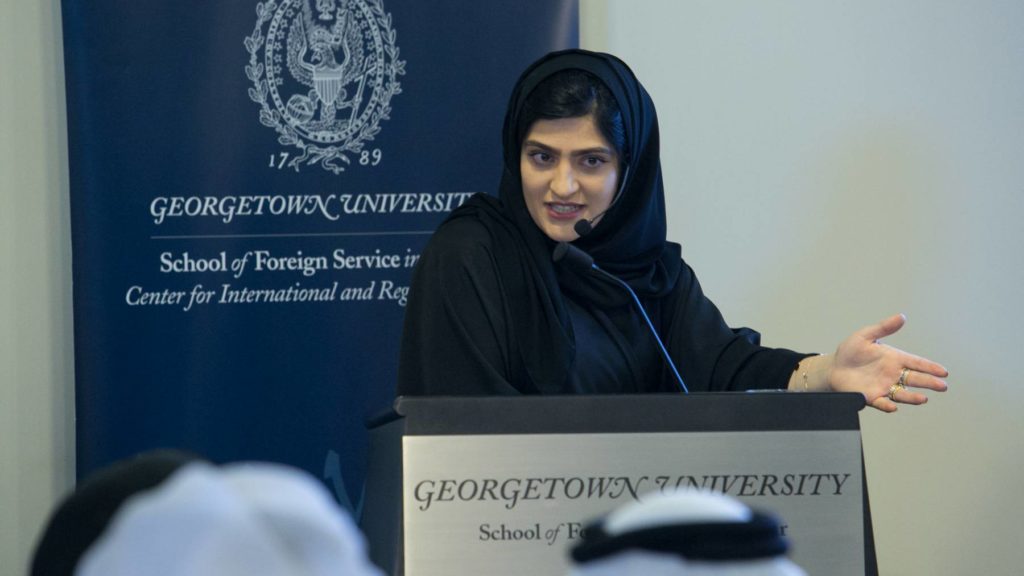Georgetown University Lecture Tackles Black Money in Qatar and Around the World

The billions of dollars criminals launder through the global financial system, the staggering social, economic, and political fallout they cause, and what countries like Qatar are doing in response was the focus of a public Center for International and Regional Studies (CIRS) Monthly Dialogue Lecture Series titled: “Is Black Money Really Black? The International and National Fight Against Money Laundering”.
The talk was delivered by special guest Dr. Reem Al-Ansari, a professor at Qatar University’s College of Law and the 2015-2016 CIRS Qatar University Fellow at Georgetown University in Qatar.
Beginning her lecture by defining the term “money laundering”, she said that: “In its simplest form, money laundering refers to an amount of money leaving from destination A, and using techniques to make it seem like the funds were obtained from destination B, a legal source.” Once the money has moved through several banks in several countries, it can then be returned to its owner, ready to be used as legitimate funds.
She was introduced by CIRS director Dr. Mehran Kamrava, who said, “We are honored to be hosting Dr. Al-Ansari, who is our annual Qatar University Fellow here at CIRS this year, and to hear her expert insights into the complexities of this important topic.”
Dr. Al-Ansari, who is also the Director of the Legal Research and Studies division at Role of Law and Anti-Corruption Center (ROLACC) in Doha, listed the various countries targeted for money laundering, as well as the nations that serve as destinations for newly cleaned money.
Adding that Qatar is also a target of this criminal activity, she said: “Qatari authorities have responded to the threat of money laundering aggressively with the National Money Law in 2010.” This comprehensive law was enacted following the unsatisfactory conclusion of an IMF-led evaluation report of Qatar’s banking system. “That was Qatar’s awakening to the threat, and it led to the new law.”
The newly established regulations are particularly important as a result of the criminal opportunities posed by the upcoming World Cup in 2022, she said.
Further strengthening Qatar’s anti-corruption commitment, she added that, “Qatar now adheres to the series of recommendations that FATF has developed and that set the international standard for combating of money laundering,” referring to the nation’s membership to the Financial Action Task Force, an intergovernmental policy-making body, established in 1989 to promote effective implementation of measures for combating threats to the integrity of the international financial system.
The consequences of unchecked money laundering, she concluded, are severe, including increased criminal activity and currency inflation in developing economies, which bear the consequences of economic collapse when critical funds simply disappear as they continue through the multi-step money cleaning process.
Dr. Reem Al-Ansari earned her Doctorate degree from Georgetown University’s Law Center in Washington D.C., marking her the youngest Qatari lawyer and doctorate degree holder in the country. She previously worked at the World Bank headquarters in the Governance and Anti-corruption (GAC) unit, and is the recipient of two EED awards for education excellence. She is currently working on a book tackling the issue of money laundering and corruption.